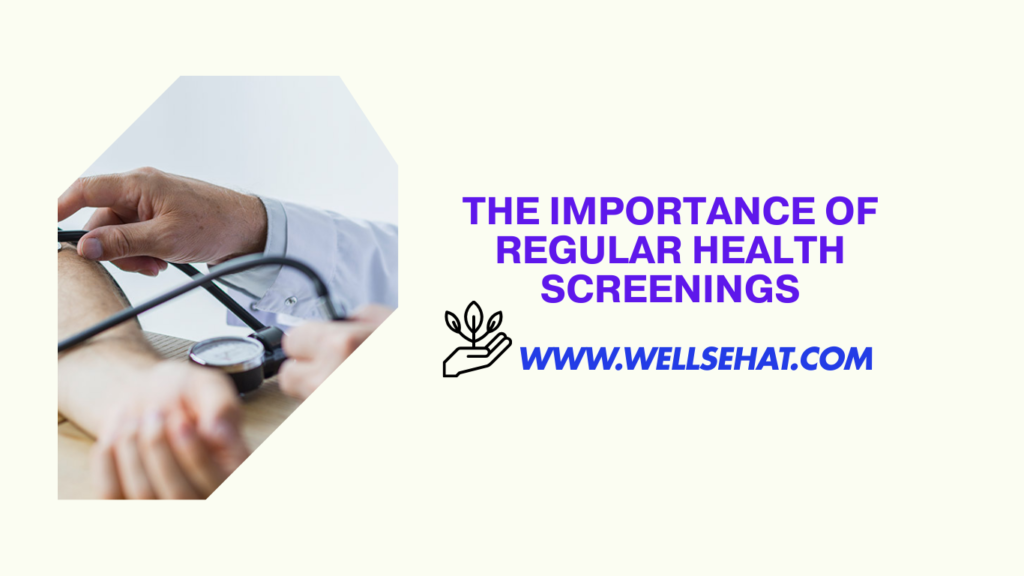Health screening has a crucial role in the control of the disease, for which it is possible to better diagnose a possible problem before it is already a major complication. Most chronic diseases have potential risk factors that might be evaluated and managed well in case check-ups and screening are done frequently. This article will explain why health screenings are important, the different types of screens you may need, and how to make sure you don’t forget your screens.
Why is Health Screening Critical?
Early Detection of Diseases
Most of the chronic illnesses for example diabetes, hypertension, and some cancers are not easily diagnosed because they are often asymptomatic. Screenings checks such diseases at early stages where it is easily manageable and might save lives and help in the reduction of future, excess hospital bills.
Identifying Risk Factors
Health screenings identify dangers for example high levels of cholesterol, overweight, or family history of certain diseases. It becomes easier to control these risks once they are identified by you and your healthcare provider through changes in lifestyle or the use of preventive medications.
Promoting Preventive Care
Health checkups make people} take their health checks in a positive way by interacting with the doctors from time to time. This engagement can have useful health information outcomes with the enhancement of personal health hence raising the general health standards of individuals.
Establishing a Baseline
Checkups help establish benchmarks regarding your weight, pressure, cholesterol, and other pertinent entire body statistics. It is effective if you are able to follow these methods and figures, then you will be in a position to analyze your health and get to know when it is bringing out certain things that are not healthy for you.
Improving Quality of Life
Life can be enhanced through timely diagnosis and care or disease prevention as evidenced from this unit of study. If health problems are treated at an early stage, people are able to stay healthy and lead active lives on their own.
Read More… Digital Detox The Benefits of Unplugging for Physical and Mental Health
Types of Health Screenings
Blood Pressure Screening
They exemplify high blood pressure as being a probable cause of heart disease and stroke. Screenings are also very important since you will be able to have your blood pressure checked frequently, and should there be any changes that need a change in your lifestyle or in the treatment plan, you will be informed.
Cholesterol Testing
Cholesterol can cause heart disease and the brain and allow a person to suffer from a stroke. At least a basic blood check can reveal what your cholesterol count is and therefore the risks associated with it.
Diabetes Screening
Diabetes can be diagnosed by checking blood sugar. Some of the other symptoms of diabetes include; obesity and a family history of the disease, so if you have this you don’t need to worry because if it is screened early enough it can be detected.
Cancer Screenings
Different types of cancer have specific screening guidelines:
- Screening mammography for breast cancer (usually administered to women aged 40-50).
- Pap smear and HPV smear for cervical cancer; however, these should start at age 21.
- Cancer screening for colon or rectum cancer by colonoscopy starts from 45 years.
Bone Density Testing
This test specifically measures bone density and may be used in diagnosing osteoporosis in postmenopausal women and elderly citizens.
Vision and Hearing Tests
To check any complications that may disguise and affect life quality and safety eye checkups and hearing checkups are recommended regularly.
Mental Health Screenings
One cannot also lie that the mental part of a person also needs to be healthy just like the physical body. Screening is likely to pick early signs of disorders including depression and anxiety and provide necessary attention.
Conclusion
Periodic examinations are one of the most important elements of primary prevention aimed at the timely diagnosis of existing diseases. By ensuring that you are active in your health, and following standard check-up regimes, you should be able to reverse your quality of life for the better. Take a stand to focus on your health, work with your doctor, and join the move towards preventing diseases.
